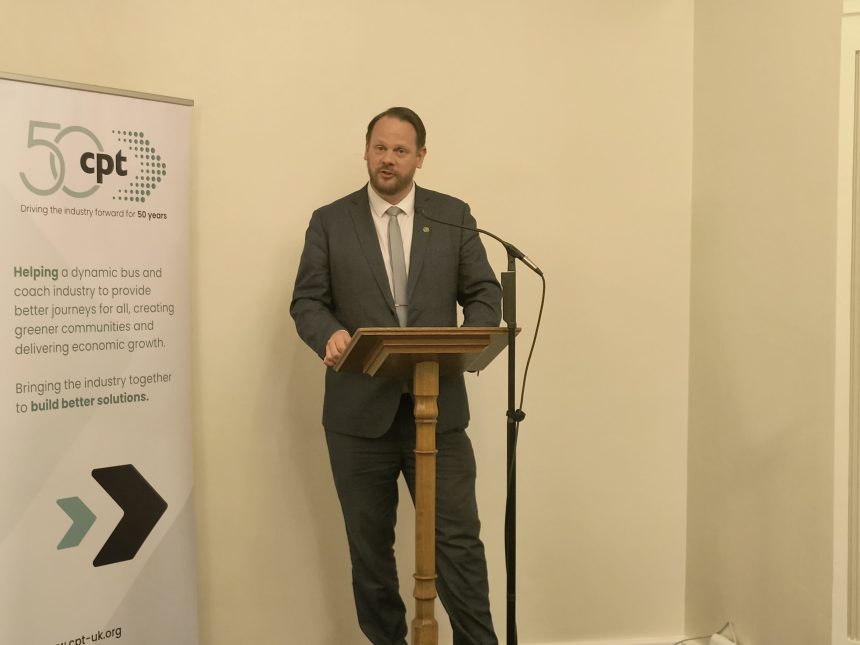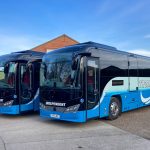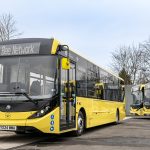Labour would invest heavily in hydrogen manufacturing, shadow Transport Minister Simon Lightwood reiterated in addressing the challenges of decarbonisation for rural bus services.
Speaking at the launch yesterday of the Confederation of Passenger Transport’s (CPT) Rural Zero-Emission Bus Taskforce report, Mr Lightwood also said a Labour government would reform electricity grid supply if it won the next general election.
The Taskforce highlighted the challenges of replacing diesel buses outside towns and cities, which include need for a potentially greater range.
With Mr Lightwood set to take over responsibility for transport in the event of a Labour general election win in the 12 months, he mentioned both battery-electric and hydrogen in his speech.
“Hydrogen is of particular interest to rural operators because of its range potential,” he says, adding. “Labour has a plan to channel significant investment into green hydrogen manufacturing over the first parliament of a Labour government via our National Wealth Fund.
“Labour has also commissioned an independent infrastructure review which will be looking into what Labour needs to do transform the planning system and the delivery of transport infrastructure.
“That includes tackling head-on the issues in the planning system, like the issues holding back hydrogen.”
Production of hydrogen fuel cell buses has lagged well behind that of battery electric so far in the UK, with no applications thus far in rural settings.
The latter will continue to be of great importance nationwide and Mr Lightwood highlights Labour’s “Rewiring Britain” plan to address National Grid shortfalls.
“To meet the huge demands that decarbonisation will place on our National Grid, Labour knows that we need bulk reform,” he says. “We know the huge increase in both clean power generation and clean energy, including clean transport, will require four times as much grid infrastructure to be built in the next seven years as has been built in the last thirty.
“Britain’s grid infrastructure has now become the single greatest obstacle to both deploying cheap clean power generation and electrifying industries across the country, including buses and coaches.
“The queue for grid connections is now growing hugely out of control. More than £200 billion worth of privately funded projects are stuck in the pipeline and we’re facing a farcical situation where new grid connection dates are being offered for 15 years’ time…
“To truly decarbonise right into rural areas, we need bold reform. Should we be fortunate enough to serve, the next Labour government would break down barriers to facilitate the largest upgrade of our national transmission infrastructure in a generation.”
The Rural Zero-Emission Bus Taskforce, which included representatives from operators, manufacturers and local authorities, are focused on pressing for local transport authority collaboration, prioritising grid infrastructure for operators, developing a hydrogen strategy and a longer-term approach for funding from government.
Taskforce Chair Jeff Counsell, Warrington’s Own Buses EV Director and former Trentbarton Managing Director, says: “I have been particularly impressed with the level of engagement from both bus operators as well as national and local government representatives and experts from electricity, hydrogen and zero emission technology providers.
“It is through collaborations such as this that we will ensure all sectors can transition sustainably to zero-emission solutions.
“The Taskforce identified a key part of this journey will be through establishing local transport collaborations that bring together local stakeholders to identify available resources and unlock solutions that deliver environmental benefits for the area.”



























